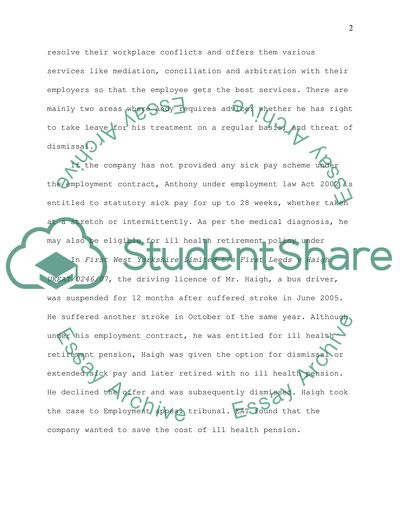Cite this document
(Employment and Discrimination Law Case Study Example | Topics and Well Written Essays - 2000 words, n.d.)
Employment and Discrimination Law Case Study Example | Topics and Well Written Essays - 2000 words. Retrieved from https://studentshare.org/law/1722838-3108-employment-and-discrimination-law
Employment and Discrimination Law Case Study Example | Topics and Well Written Essays - 2000 words. Retrieved from https://studentshare.org/law/1722838-3108-employment-and-discrimination-law
(Employment and Discrimination Law Case Study Example | Topics and Well Written Essays - 2000 Words)
Employment and Discrimination Law Case Study Example | Topics and Well Written Essays - 2000 Words. https://studentshare.org/law/1722838-3108-employment-and-discrimination-law.
Employment and Discrimination Law Case Study Example | Topics and Well Written Essays - 2000 Words. https://studentshare.org/law/1722838-3108-employment-and-discrimination-law.
“Employment and Discrimination Law Case Study Example | Topics and Well Written Essays - 2000 Words”. https://studentshare.org/law/1722838-3108-employment-and-discrimination-law.


